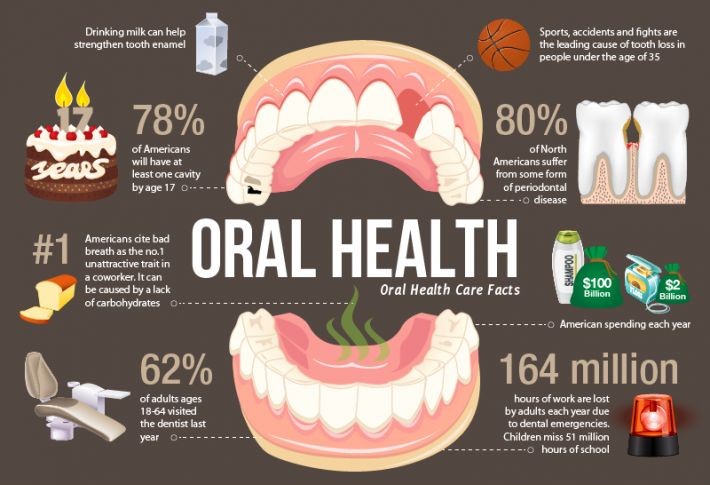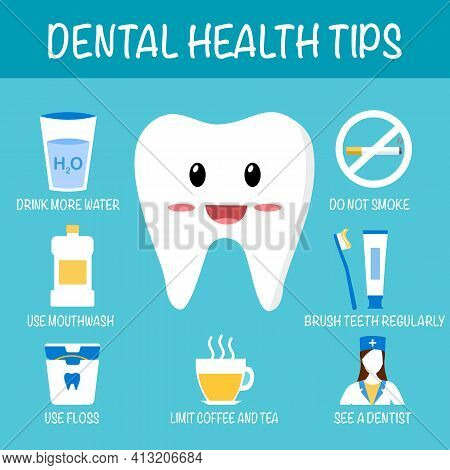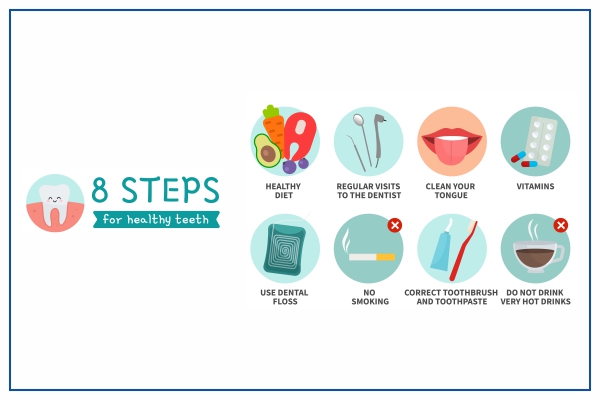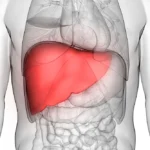A tight jaw can be caused by a variety of factors, including stress, temporomandibular joint issues, nightly tooth grinding, and tetanus.
Jaw tightness can cause pain or discomfort, affecting daily activities like eating and drinking.
The pain’s intensity can be described as aching, throbbing, clicking, stiff, or severe. It can affect one or both sides of your jaw, although the particular location of the pain varies.

For example, symptoms can impair your
head
teeth
neck
nose
mouth
ears
Jaw tightness can be caused by a variety of factors, including minor trauma, infections, and medical problems.
Continue reading to learn more about the reasons and treatments for jaw stiffness.
Causes of locked jaw
There are various causes of jaw tightness, ranging from minor to severe.
Temporomandibular joint diseases (TMD, TMJD)
TMD causes pain in the jaw joint and its surrounding muscles. It may cause pain or locking in one or both hinge joints (temporomandibular joints). These joints are situated between the lower jaw and the temporal bones.
TMD can also produce pain, throbbing, or soreness in or around the ear, jaw, and face. Chewing food may worsen pain and cause a clicking or grinding sensation.
TMD pain is usually transient and can be treated at home.
Stress
Stress and anxiety can cause Trusted Source jaw stiffness and discomfort.
For example, you could unknowingly clench your jaw or grind your teeth while sleeping. You may also unconsciously clench your jaw when awake.
Stress might also result in other symptoms, such as tension headaches.
Bruxism, or tooth grinding
Bruxism (tooth grinding) can have a variety of reasons, including:
Stress
Sleeping issues, such as snoring and sleep apnea
taking specific drugs, such as selective serotonin reuptake inhibitors (SSRIs).
consuming illegal narcotics like cocaine and ecstasy.
Bruxism can produce tightness and soreness in the face, neck, and upper or lower jaw. It may also produce headaches or earaches.
Excessive chewing
Chewing gum or any other substance in excess can cause tightness in the lower jaw (mandible).
Rheumatoid arthritis (RA)
Rheumatoid arthritis is an autoimmune inflammatory disease. It affects muscles and joints all across the body.
According to research, up to 86% of persons with RA have TMD, a condition that causes jaw tightness.
RA can harm the jaw joint and adjacent tissues. It may also cause bone loss in the jaw.

Osteoarthritis (OA)
Although uncommon, osteoarthritis (OA) can develop in the temporomandibular joints. It can lead to degeneration and loss of function in the jaw bone, cartilage, and tissue. This might lead to a tight and uncomfortable jaw. It can also cause discomfort to radiate throughout the surrounding area.
Tetanus
Tetanus (lockjaw) is a potentially lethal bacterial infection. The symptoms include abdominal rigidity, difficulty swallowing, and painful muscular contractions in the jaw and neck.
In the United States, there are three tetanus vaccines available to assist prevent illness, including
DTaP vaccine
Td vaccination
Vaccines have greatly reduced the frequency of tetanus in the United States.
Facial Trauma
An injury to the face might impair the area of the jaw that moves, causing pain or tightness.
Blunt force, such as a striking injury, as well as cancer therapies such as surgery or radiation, are all possible causes of jaw damage.
Medications
A 2014 case study discovered that antipsychotic medications and metoclopramide (Reglan) can cause jaw discomfort symptoms.
Infections
An infection in your mouth, such as a dental abscess, might impair jaw movement.
Though uncommon, infections can permanently damage muscles or nerves, resulting in recurring attacks of lockjaw.
Causes of numerous symptoms
A locked jaw may be accompanied by additional symptoms.
Jaw popping and locking.
You may have a painful popping feeling combined with a tight jaw. This symptom could be caused by:
- TMD
- Teeth grinding
- excessive chewing
- arthritis and other medical disorders.
- Locked jaw and ear ache.

Ear ache is a common sign of a tight jaw. It is usually caused by
Exercises to reduce jaw tension
Targeted exercises and stretches may help to reduce jaw stiffness and increase range of motion. Here are three that you can try:
Manual Jaw-Opening Exercise
To warm up, repeat small mouth-opening and mouth-closing movements several times. Next, place your fingers on top of your front four bottom teeth.
Slowly pull down until you feel a little discomfort on the tight side of your jaw. Hold for 30 seconds before slowly releasing your jaw back to its initial position.
Begin by performing this stretch three times, gradually increasing to 12 repetitions.
Jaw joint stretch
This exercise stretches the muscles of the jaw and neck.
Press the tip of your tongue on the roof of your mouth, right behind your top front teeth, without touching them. Next, use your tongue to exert mild pressure. gently widen your mouth as wide as you can and then gently close it.
Stop at the point when you feel uncomfortable. Repeat up to ten times. However, if this workout gives you pain, you should avoid it.
Smile stretch
This stretch helps to relieve stress in the facial muscles, upper and lower jaws, and neck.
Smile as broadly as you can without feeling tense or in discomfort. While smiling, softly open your jaw another 2 inches. Inhale deeply through your mouth, then exhale and let go of the smile. Repeat up to ten times.
Mouthguards for Tight Jaw
If you suffer from jaw tightness, you should consider using a mouthguard.
A variety of mouthguards are available. These can be created from a variety of materials, including hard acrylic and soft polymers.
If you suffer bruxism, your dentist may recommend a mouthguard to prevent contact between your upper and lower teeth while you sleep. This can assist reduce tooth wear and tear while also preventing jaw tension.
If you have a joint condition, your dentist may recommend a mouth splint that gently holds your lower jaw forward, protruding toward the front of your mouth. This reduces the strain on your jawbone and surrounding muscles.
Mouthguards are offered over-the-counter or on prescription.
Custom-made and 3D-printed mouthguards are more expensive, but they allow for different thicknesses depending on the severity of your problem.
Speak with a healthcare professional to determine the best option for you.

When to visit a doctor
If you encounter any of the following symptoms, contact a healthcare practitioner.
- Having difficulties eating, drinking, or speaking
- When you move your jaw, you may hear cracking, grinding, or clicking noises.
- Jaw ache that affects your ear and the side of your head.
- changes in your vision.
- Severe headaches
- Treatments
Several home remedies and medical therapies may help alleviate jaw tightness. This may include:
- Applying a hot or cold compress to your jaw can help relieve pain.
- Trying relaxing techniques.
- Massage your jaw.
- Taking over-the-counter or prescription pharmaceuticals, such as pain relievers and nonsteroidal anti-inflammatory drugs.
- treatments like Botox or corticosteroids
- Shortwave diathermy.
- Jaw surgery
- Prevention
Some strategies to help prevent jaw tightness could include:
- Try stress-relieving hobbies like yoga, meditation, and exercise.
- Avoid firm, chewy foods such as steak, nuts, taffy, and raw carrots.
- Improve your sleep hygiene.
- If at-home preventative tactics do not work, consult a doctor or dentist to see how you might relieve jaw tightness.
Frequently asked Questions
What does stiffness in the jaw indicate?
Several factors can contribute to jaw tightness, including facial injuries, teeth grinding, tetanus, excessive chewing, and temporomandibular joint issues.
How do you treat a tight jaw?
Massage, jaw stretches, wearing a mouthguard at night, avoiding hard meals, and engaging in stress-reducing hobbies are all options for easing jaw tightness.
Can anxiety cause jaw stiffness?
Anxiety has been demonstrated to cause or increase symptoms of jaw stiffness.
Takeaway
A tight, painful jaw can be caused by a variety of factors, including bruxism, TMD, and stress. Some at-home remedies might help relieve or prevent stiffness and pain.
These include stress reduction and behavioral changes, such as eating soft foods and avoiding chewing gum. Mouthguards and splints can also help.
Habits such as clenching your jaw or biting your fingernails can damage the joints that link your jawbone to your skull. Certain medical disorders might also induce jaw cracking.
TMJ problems can cause jaw popping, a painful sensation. These joints connect the jawbone with the skull, one on each side. The temporomandibular joint’s hinge action is what allows you to chew, talk, and yawn. When the joint does not function properly, popping can occur.
The word TMJ refers to both the joint and the condition. The disorder is also known as TMD and TMJD.
What causes the jaw to pop?
You may have jaw popping and TMJ if:
- excessive gum chewing
- Bite your nails.
- Grind your teeth.
- Clench your jaw.
- shove your jaw out.
- Bite your lip or cheek.
- Frequent usage of these activities can create wear and tear on the joints, leading to erosion.
Jaw popping is usually not a cause for concern unless it is accompanied by jaw pain. However, certain underlying reasons of popping can result in a TMJ disease that requires medical care. These causes may include:
Arthritis
Arthritis can damage the temporomandibular joint’s cartilage. Both rheumatoid arthritis (RA) and osteoarthritis (OA) can harm the jaw. Loss of cartilage causes jaw movements to lack appropriate absorption in the joint socket.
various OA symptoms include joint pain and stiffness in various parts of the body. This includes a reduced range of motion.
If you have RA, you may feel lack of appetite, fatigue, and anemia. Arthritis demands long-term medical care. Learn more about arthritis.
Broken or dislocated jaw.
If you have been injured, your jaw may be shattered or dislocated. Dislocation happens when the jaw joint becomes unhinged.
Common causes include
A physical assault on the face.
Vehicle Accidents
Falling at home.
Industrial Accidents
Sports Injuries
If your jaw is broken or dislocated, you might also feel:
- swelling
- bleeding
- numbness
- bruising
- Jaw injuries must be addressed quickly for optimum healing. Learn more about the broken or dislocated jaw.
Malocclusion of teeth
Malocclusion of the teeth causes misalignment. This may cause the jaw to pop. Malocclusion is also referred to as a crossbite, overbite, underbite, open bite, or overcrowded teeth.
Other signs of this condition are:
- altered facial look.
- Biting the inner cheeks or tongue regularly.
- discomfort during eating or biting.
- breathing via your mouth
- Speech problems
- Misalignment is typically addressed with braces and other orthodontic treatments. Learn more about malocclusion in the teeth.
Myofascial Pain Syndrome
Myofascial pain syndrome (MPS) causes chronic discomfort in the musculoskeletal system. The pain is usually limited to a single region. MPS can cause the jaw to pop.
People with MPS have trigger points, also known as sensitive places. When you apply pressure to these trigger points, it causes pain. A person with MPS may have:
- Pain that worsens with muscle strain or stretching.
- Pain that doesn’t improve after a week
- uncomfortable knots in muscles
- A reduced range of motion in the affected area
- Mood and sleep disorders
- Learn more about MPS.
Sleep apnea
Jaw popping can be caused by either obstructive sleep apnea (OSA) or central sleep apnea. OSA causes a person to stop breathing involuntarily during their sleep cycle due to throat narrowing. The reduced airflow limits how much air enters the lungs. This leads the individual to wake up and catch their breath.
Other symptoms of OSA are
- snoring
- Daytime sleepiness
- headaches
- depression
- Leg swelling.
- Learn more about OSA.
People with CSA stop breathing during sleep because the brain does not send accurate signals to the muscles. Individuals with CSA may experience:
- trouble swallowing
- alterations in speech patterns and voices
- Generalized weakness
- Sleep apnea is most commonly treated with a CPAP (continuous positive airway pressure) equipment.
Infection
Infection of the salivary gland can cause TMJ and jaw popping, among other symptoms. The infection may reside in:
- The parotid glands within each cheek
- the submandibular glands located immediately below the jawbone
- the sublingual glands are placed beneath your tongue
You may be unable to fully expand your mouth, which can result in popping. You might also have:
- Pus in the mouth.
- Dry mouth
- Face Pain
- Bad taste in the mouth.
- edema of the face and neck.
- Salivary gland infections must be treated right soon. Learn more about salivary gland infections.
Tumor
A tumor, which can progress to oral cancer, can affect the jaw. Tumors may develop in the:
- lips
- tongue
- cheek
- gums
- Floor of the mouth.
- Hard and soft palate
- Jaw popping can occur when a tumor interferes with jaw movement.
Symptoms of oral cancer are:
- a sore on your lips or mouth
- Loose teeth
- Having problems wearing dentures
- A persistent earache
- a lump or growth in your mouth
- A bump on the neck
- significant weight loss.
- Consult your doctor about therapy. Learn more about mouth cancer.
How is jaw popping treated?
Your doctor may suggest at-home therapies to help you manage your TMJ. Home treatments could include:
- Apply an ice pack or damp heat on the jaw.
- taking nonsteroidal anti-inflammatory medicines (NSAIDs) such as ibuprofen (Advil) and aspirin, antidepressants or muscle relaxants.
- eating soft foods.
- Wearing a night guard or splint.
- practicing TMJ-specific exercises.
- Your doctor may also recommend that you seek medical therapy, such as:
Corrective Dental Treatments
- ultrasounds
- Trigger point injections.
- Radio Wave Therapy
- Transcutaneous electrical nerve stimulation (TENS).
Surgery is occasionally a possibility, but only when other therapies have failed. Relevant operations include:
- arthrocentesis (removing fluid from a joint)
- Open joint surgery (joint replacement or repair)
- arthroscopy (the use of small surgical devices to fix joints)
What is the outlook?
Women are more likely to get TMJ, though it is unclear why. According to studies, TMJTrusted Source is more common among young people and women aged 30 to 50. Anyone, regardless of age or gender, can experience jaw cracking and TMJ.
In most cases, the condition is transitory. TMJ can be alleviated with lifestyle changes and home remedies.


